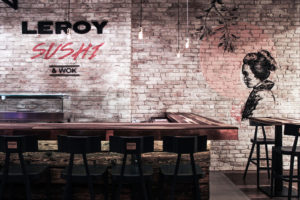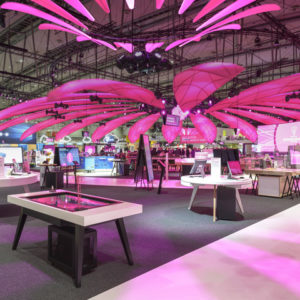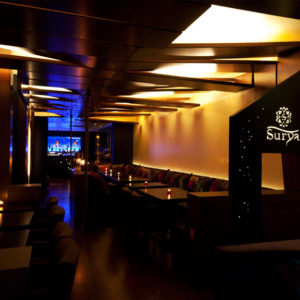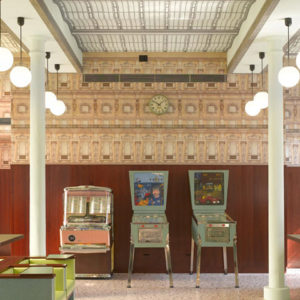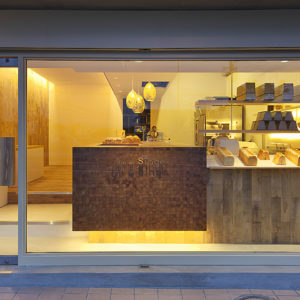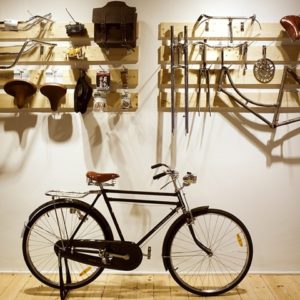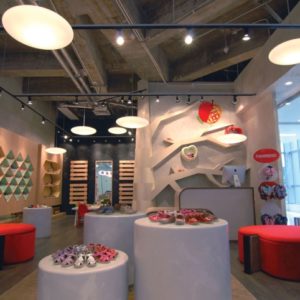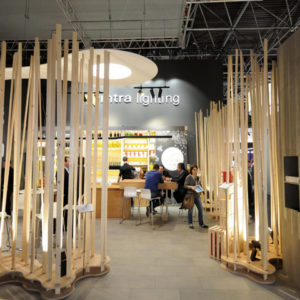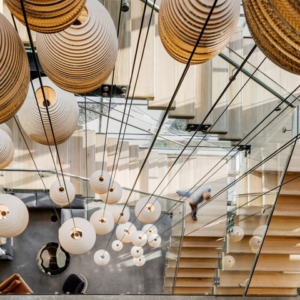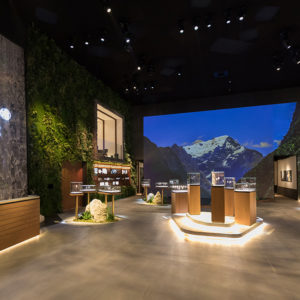
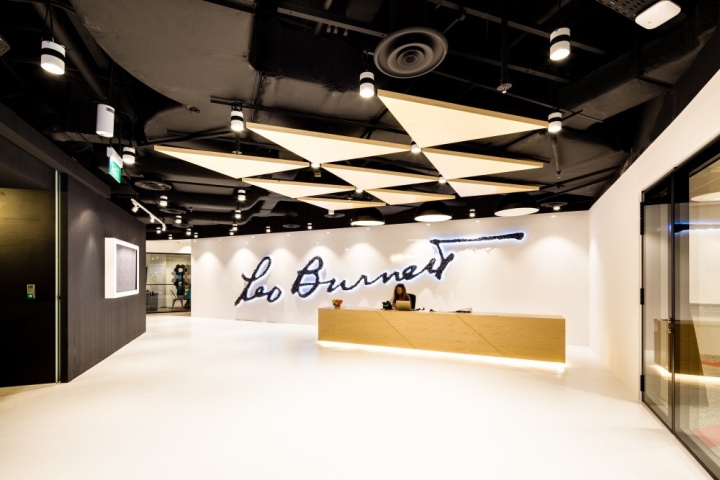

Leo Burnett incorporates ‘WE’ spaces, local culture, geometric motifs and art installations that fuse east and west, old and new, to create a collaborative, innovative workspace – a ‘crucible of creativity’ that drives business results. Upon entering the lobby, one is greeted by a simple, striking ceiling lighting juxtaposed with a Peranakan-motif patterned floor. The lobby expands into the reception area where a geometric ceiling feature punctuates the black and white of the ceiling, walls and floor, and its wood texture adds a tint of warmth to the space. This is echoed by the reception counter’s similar material palette. Behind it, Leo Burnett’s name is a handwritten sprawl that up-close, is revealed to be Leo Burnett pencils delicately put together.

Beside the reception sits a café-style waiting area and a large meeting room. The room’s clear panelled walls separate it from other areas; its black curtails provide greater privacy. These operable wall panels can also be moved back, demonstrating the space’s fluidity. Other meeting rooms are similarly designed with clear partitions and geometric patterned carpets. The tables and seating differ from room to room, creating variety. Feature walls add a visual and intellectual stimulant to each room. Collages of Chinese paintings, food menus and LDs form unconventional canvases for modern graffiti and witty expressions while traditional Chinese door panels painted bright orange hang as a wall upon a wall.

The main work area perpetuates the black, white and light brown palette. Geometric carpeting differentiates communal areas from workstations. Random open panels break the monotony of an all-white ceiling board. Long stretches of whiteboard walls provide a forum for spontaneous graffiti or brainstorming. One wall has the word ‘misbehaviour’ painted across, asserting Leo Burnett’s promise to constantly challenge, contradict and misbehave, and in the process, rise above the mundane to create truly innovative work.
Design: SCA design – a member of the ONG&ONG Group
Photography: Bai Jiwen
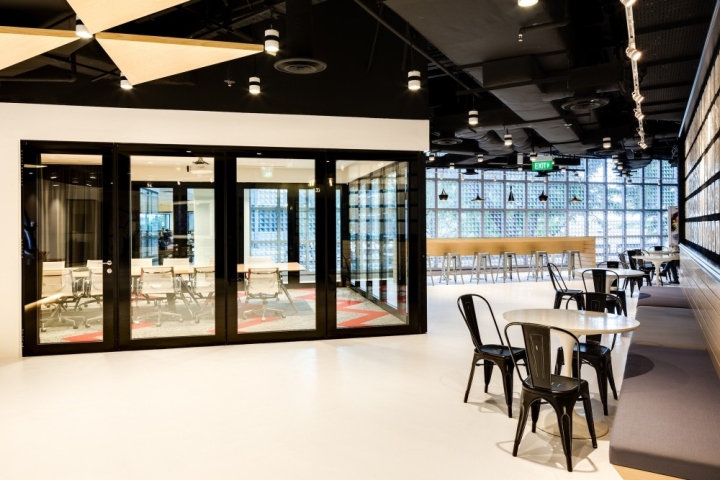
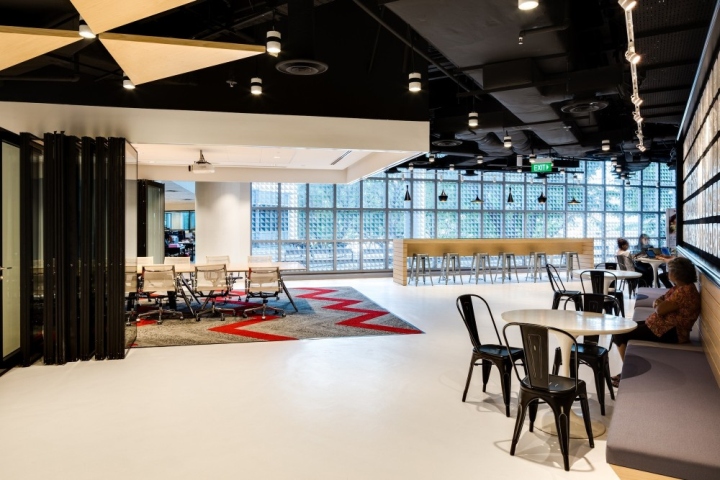
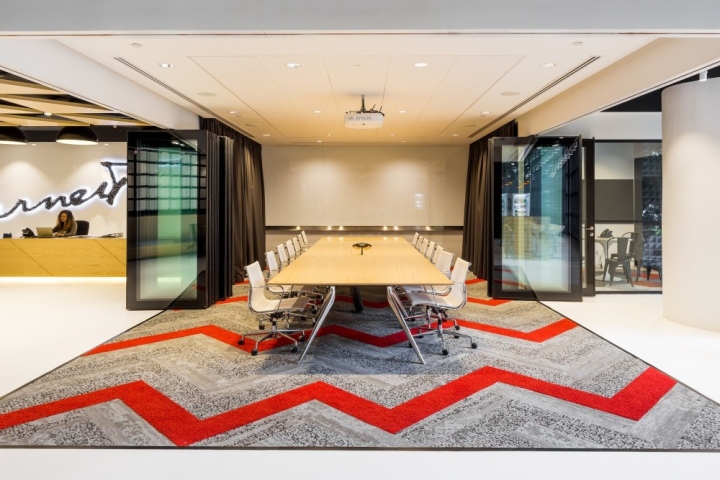
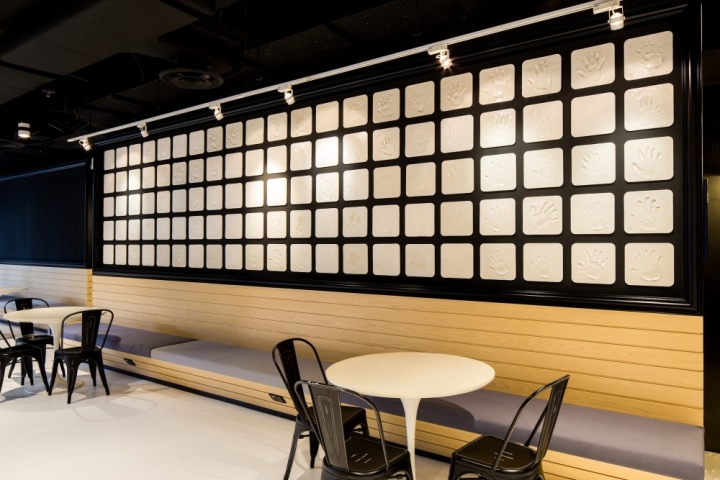

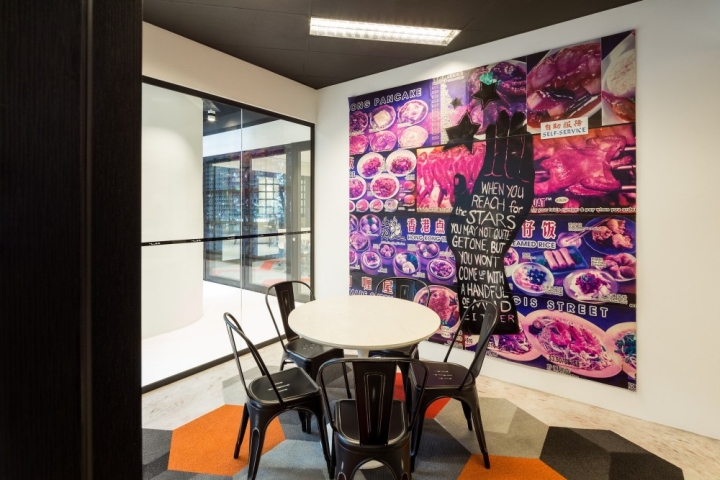
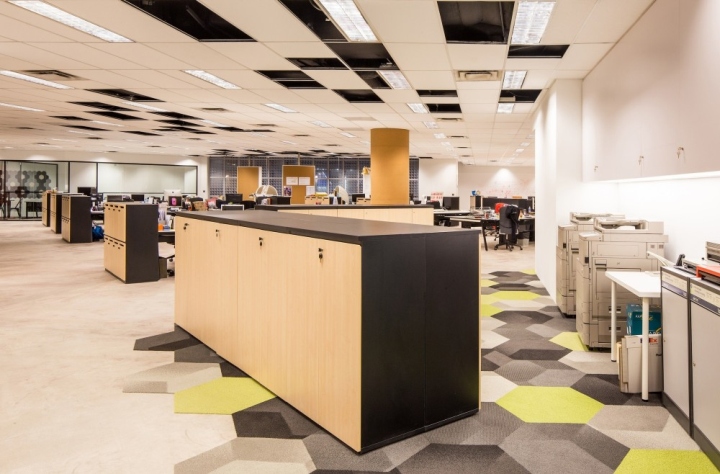

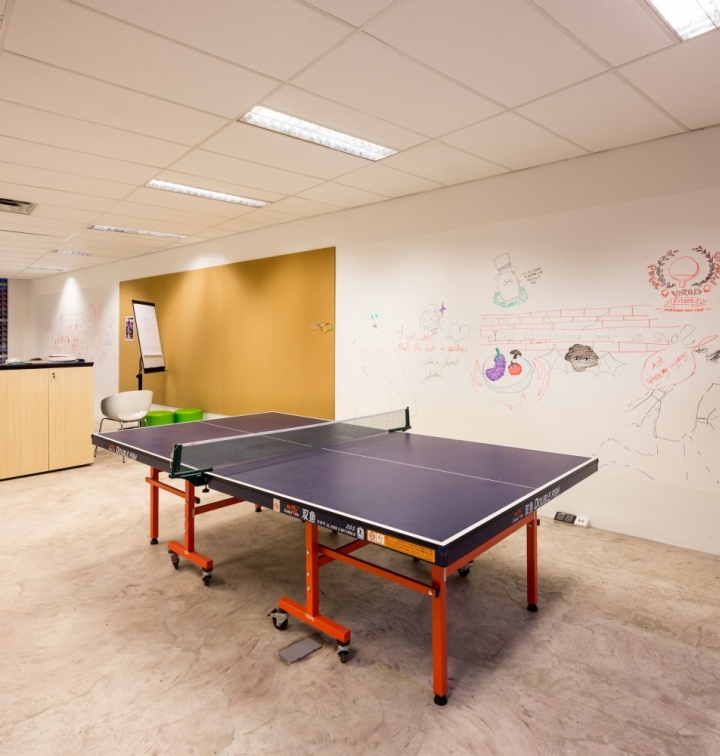

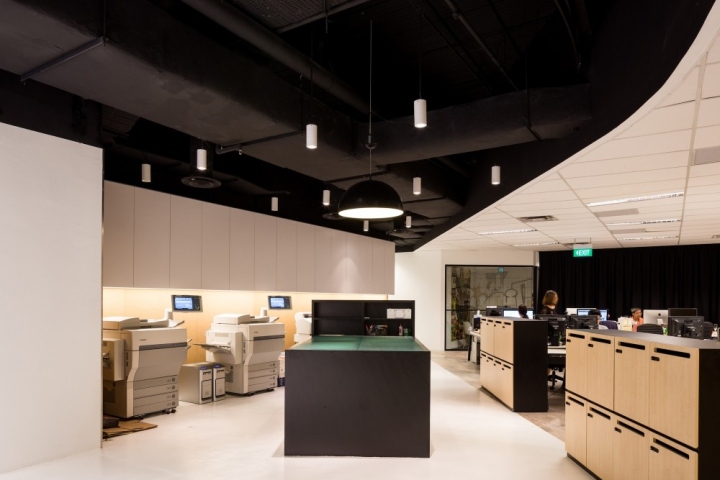
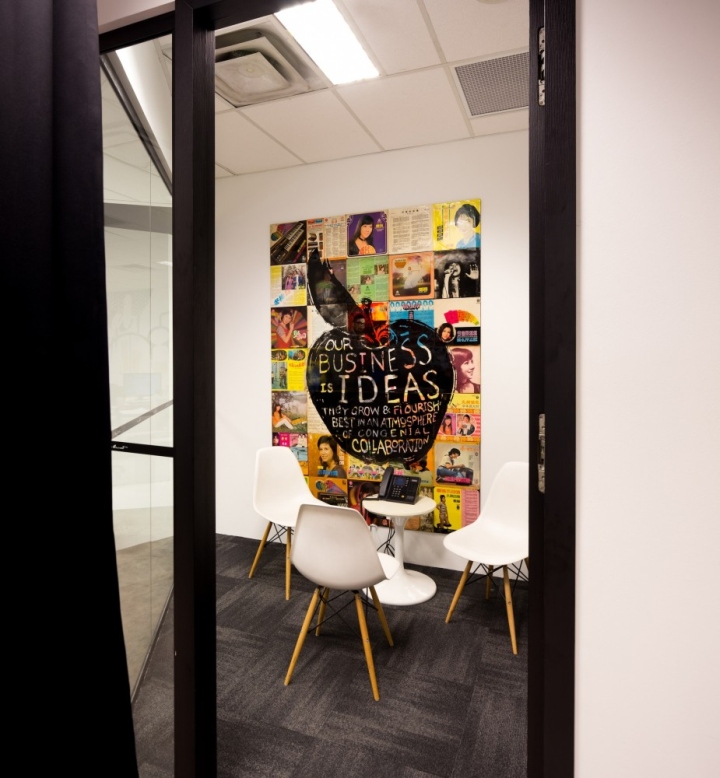
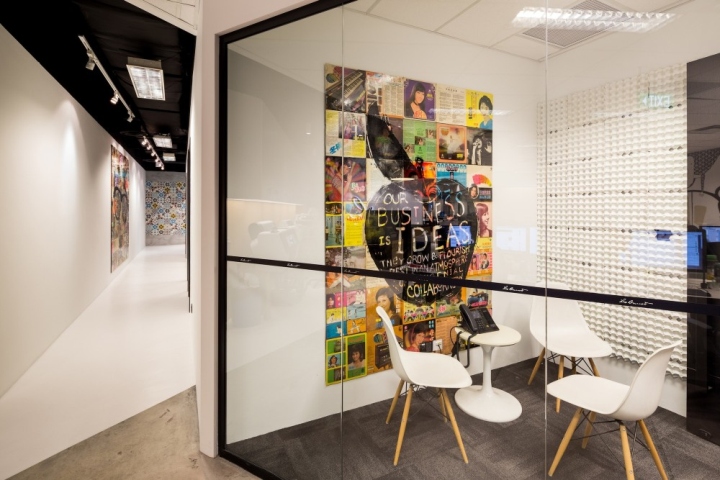
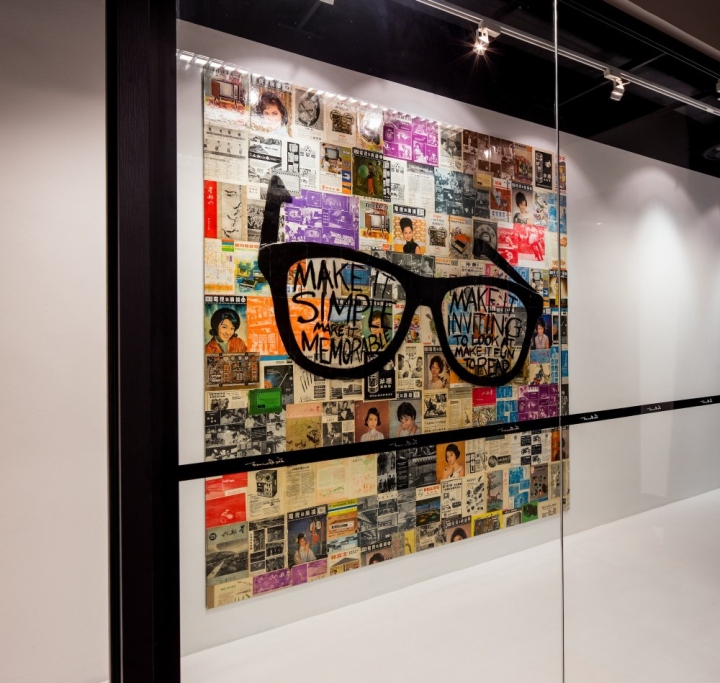
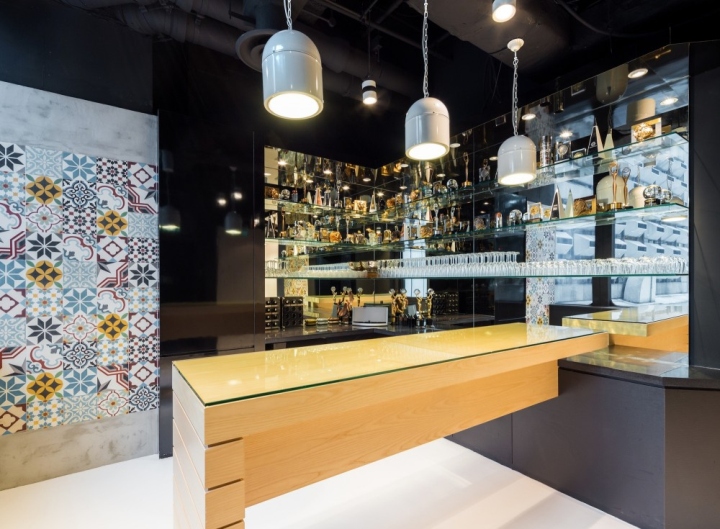
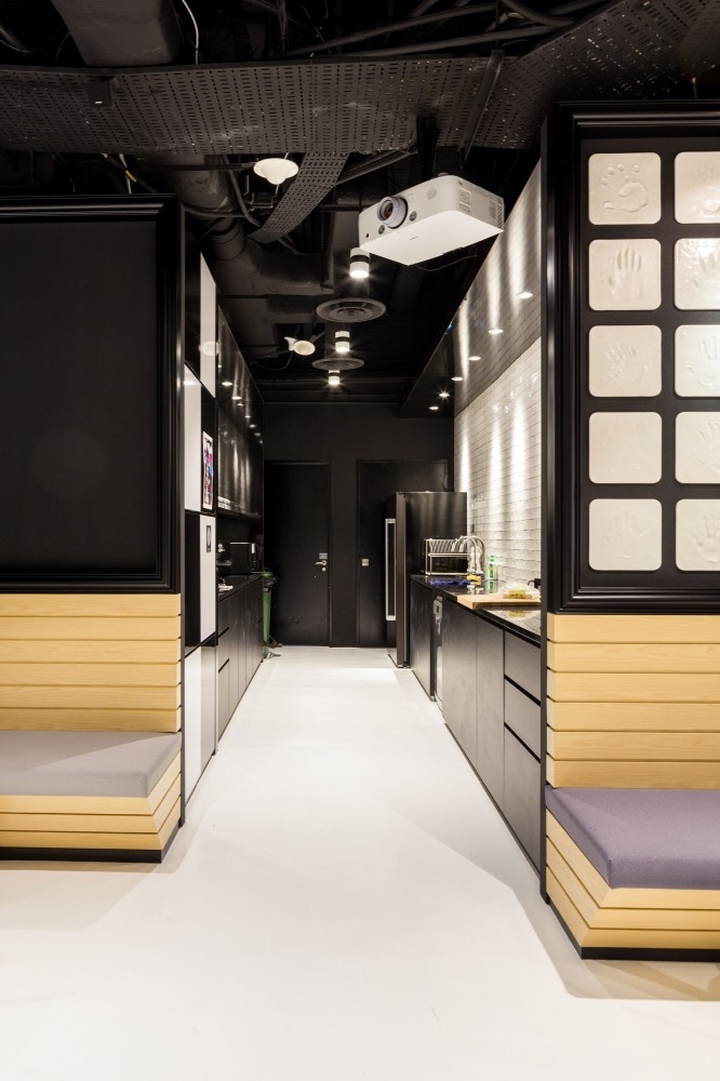
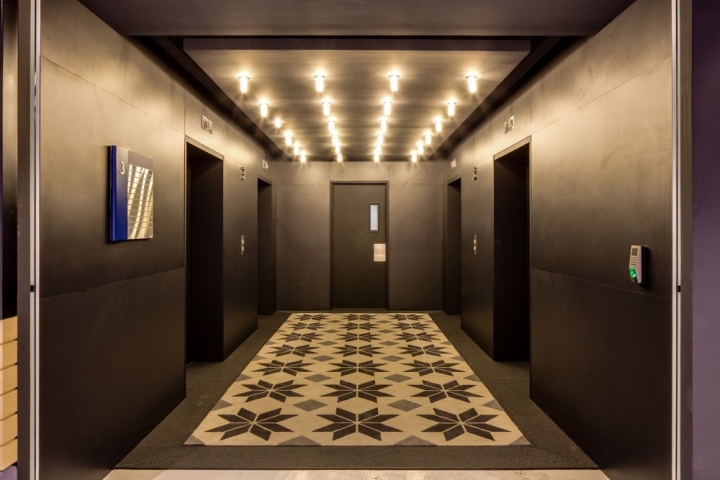


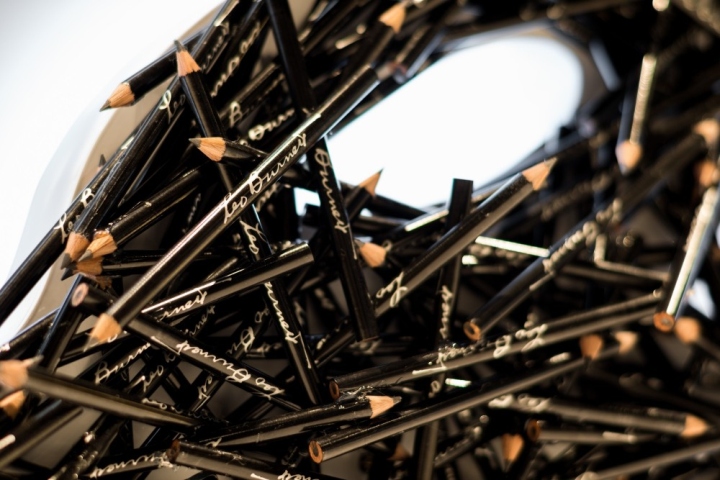
via Archdaily






















Add to collection
